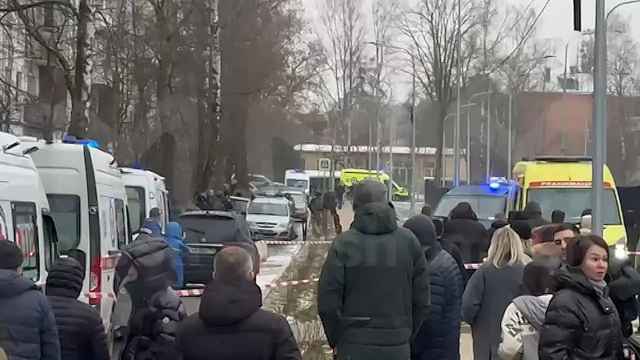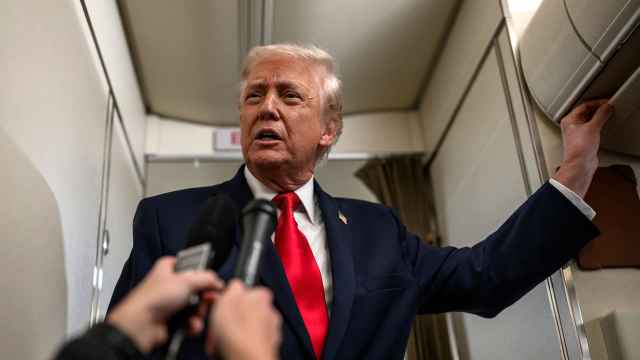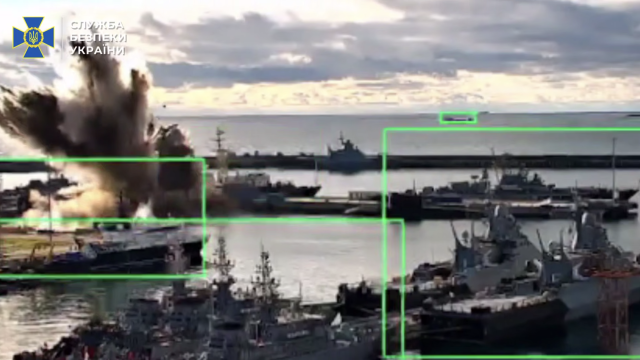KIEV — Ukraine is willing to give Russia joint control of a pipeline to southeastern Europe in exchange for access to gas supplies, Prime Minister Mykola Azarov said in an interview.
The governments are seeking to create a joint venture between Naftogaz Ukrainy and Gazprom, both of which were once part of the Soviet gas monopoly, by the end of this year, Azarov said Thursday. The agreement would reduce the price Ukraine pays for Russian gas, he said.
"I have a hope that we will meet the year 2011 with a new gas agreement," Azarov said. The current price calculation "means we are doomed to have an unfair price."
Prime Minister Vladimir Putin proposed "unifying" Gazprom and Naftogaz as he increases influence in Ukraine and President Viktor Yanukovych seeks to settle disputes that arose under former President Viktor Yushchenko.
Ukraine needs to cut energy costs as it phases out subsidies to comply with a $15.2 billion loan program from the International Monetary Fund.
Twice in the past four years Russia cut off gas shipments to Europe that flow through Ukrainian pipelines because of payment disputes.
Azarov's predecessor, Yulia Tymoshenko, signed a 10-year gas supply and transit contract with Russia in 2009, ending a two-week halt in deliveries to Europe in freezing temperatures. In April, Russia agreed to reduce the price it charges Ukraine by $100 per 1,000 cubic meters of gas in exchange for the extension of a lease on a Black Sea naval base.
The proposed venture would allow Russia to upgrade the pipeline that supplies the Balkan region, eliminating the need for the proposed South Stream project that would go around Ukraine, Azarov said.
Upgrading the southern pipeline link to the Balkan region "is a very promising project," he said. This "will allow Russia to transit fuel reliably to Bulgaria and to implement the South Stream project, only on our territory," he said.
The project would be "mutually profitable" and provide Ukraine with "transit guarantees," he said.
Azarov declined to provide specifics on how joint control of the pipeline would work or what access to Russian gas would mean for Ukraine because the negotiations are continuing. The joint venture should involve renegotiating the formula used to price Russian gas shipments to Ukraine, he said.
While European customers paid an average of $307 per 1,000 cubic meters in the first quarter, Ukraine paid just $2 less, even though it buys gas at the border and does not pay transit fees, according to Troika Dialog. Ukraine's price dropped to $236 in the second quarter after the $100 discount.
"On the basis of this plan, we would be able to agree on a revision of the disadvantageous 2009 agreements," he said. "We are not striving for any privileges or discounts, but we should not buy gas at a price that is higher than Germany or Austria."
Household gas prices in Ukraine may fall to Russian levels after a merger between Gazprom and Naftogaz, Gazprom chief executive Alexei Miller said Aug. 27. Gazprom keeps domestic prices at 1,880 rubles ($61.35) per thousand cubic meters, Miller said.
Ukraine raised its price by 50 percent to 725 hryvna (about $92) beginning Aug. 1 and plans to increase it by another 50 percent from April 1.
Ukraine may revive plans to sell eurobonds this year if investors accept yields of less than 7 percent for seven-year maturities, Azarov said in an interview.
The government scrapped a proposed $2 billion eurobond sale July 15 after investors demanded yields of more than 9 percent. The yield on Ukraine's 6.75 percent dollar bond due 2017 dropped to 6.915 percent Friday, from 8.195 percent July 6, the last quote before the planned sale was shelved.
A Message from The Moscow Times:
Dear readers,
We are facing unprecedented challenges. Russia's Prosecutor General's Office has designated The Moscow Times as an "undesirable" organization, criminalizing our work and putting our staff at risk of prosecution. This follows our earlier unjust labeling as a "foreign agent."
These actions are direct attempts to silence independent journalism in Russia. The authorities claim our work "discredits the decisions of the Russian leadership." We see things differently: we strive to provide accurate, unbiased reporting on Russia.
We, the journalists of The Moscow Times, refuse to be silenced. But to continue our work, we need your help.
Your support, no matter how small, makes a world of difference. If you can, please support us monthly starting from just $2. It's quick to set up, and every contribution makes a significant impact.
By supporting The Moscow Times, you're defending open, independent journalism in the face of repression. Thank you for standing with us.
Remind me later.





